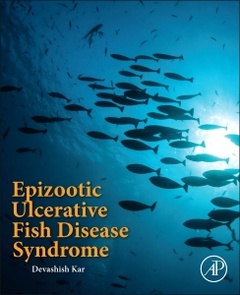Description
Epizootic Ulcerative Fish Disease Syndrome
Author: Kar Devashish
Language: English
Subject for Epizootic Ulcerative Fish Disease Syndrome:
Support: Print on demand
Description
/li>Contents
/li>Readership
/li>Biography
/li>Comment
/li>
Epizootic Ulcerative Fish Disease Syndrome covers both the background and current information on the EUS disease relevant to fisheries and aquaculture delivered in a systematic and succinct way.
The book is an essential resource for the aquaculture and fisheries researcher interested in finding solutions to the spread of the disease across the globe and students in relevant programs, including an in-depth description and analysis of the disease, as well as the structure and composition of the virus, while offering prevention and control methodologies.
Clinical veterinarians, aquaculture disease practitioners, farmers, and those who are interested in aquatic virology will find this book to be a useful guide on the topic.
- Examines different manifestations of the disease, and includes different methodologies of studies, such as histopathological, histochemical, bacteriological, mycological, virological, and enzymological
- Provides background information describing fish as a significant food source and avocation, the diversity of fishes in the globe, and the panorama of diseases fish can be exposed to
- Describes all major species affected by EUS and its pattern of spread, along with suggested strategies for control and prevention
These books may interest you

Aquaculture and Behavior 77.30 €



